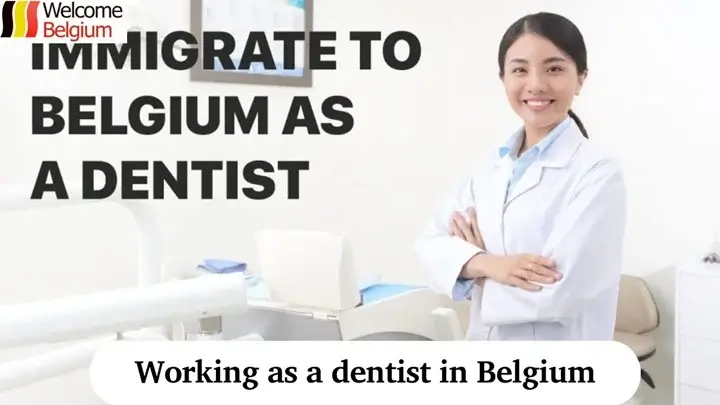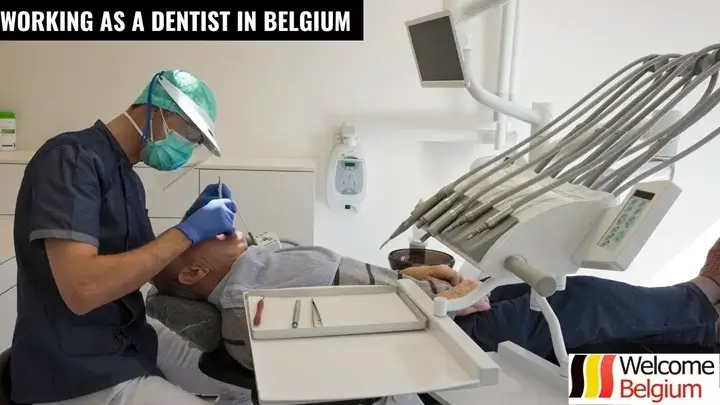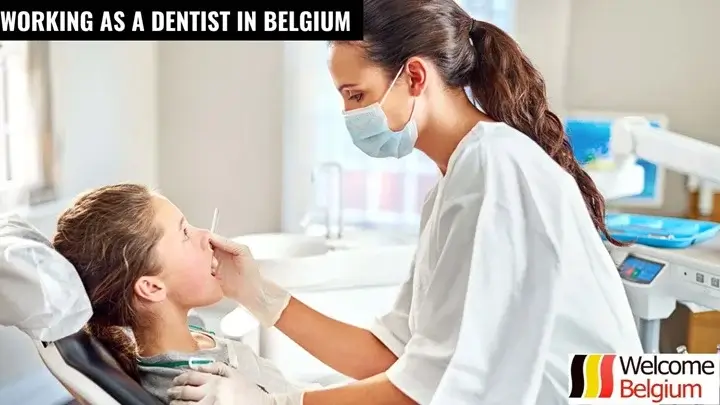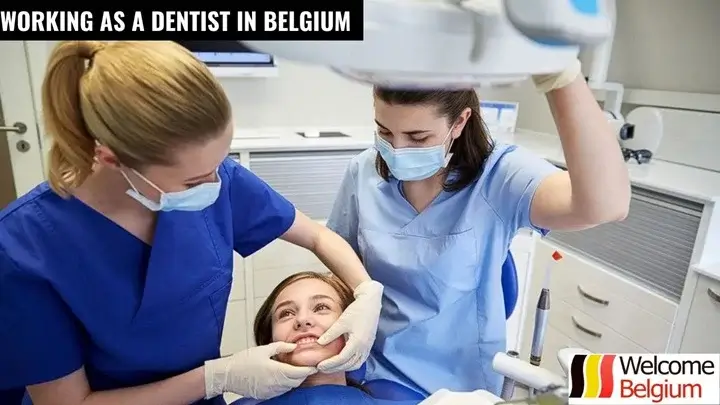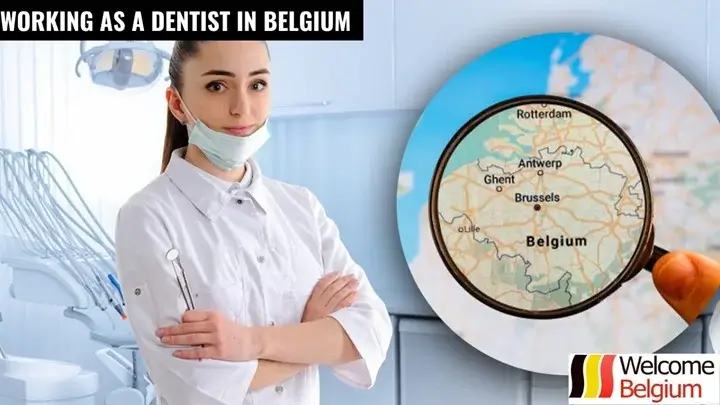Dentists in Belgium are in demand due to the high level of medicine and a wide network of clinics. Foreign specialists must confirm their qualifications, undergo licensing and speak one of the official languages of the country. The article examines the main stages of employment, working conditions and important nuances that doctors who decide to work in Belgium face.
Qualification and licensing requirements for foreigners
Finding a job as a dentist in Belgium can be challenging for a foreign professional due to strict qualification requirements and mandatory licensing. The country’s medical system has high standards, and candidates from other countries are required to prove their skills and experience. Despite the difficult requirements, employment opportunities exist for those who are willing to go through all the necessary steps.
List of qualification and licensing requirements for foreigners:
- Recognition of diploma and qualifications. Foreign specialists must undergo the procedure of diploma recognition through the Belgian Ministry of Education. Usually, it is necessary to provide diplomas, certificates of work experience, as well as academic transcripts and documents translated into one of the official languages of the country.
- Passing exams. In most cases, foreigners need to pass qualification exams to confirm their professional knowledge and skills. The exam may include a theoretical part and practical testing.
- A license to practice medicine in Belgium is mandatory. To obtain a license, a foreigner must apply to the National Order of Physicians, which regulates medical activity. Licensing requires compliance with all local standards and confirmation of professional ethics.
- Knowledge of the official language. Foreigners must have sufficient knowledge of French, Dutch or German to interact with patients and colleagues. This may require passing a language exam.
- Work contract and registration. Once all the above conditions have been met, the candidate can apply for a work contract. Registration with professional associations may also be required.
Despite strict requirements for qualifications, licensing and language skills, dentists with good experience and skills have a chance of finding employment in Belgium. Given the high demand for medical services and attractive working conditions, foreign specialists who successfully pass the licensing can count on a stable job and good career prospects. Working in Belgium also provides the opportunity for professional growth and skill improvement.
Advice:
In Belgium, it is important for doctors not only to obtain a qualification, but also to regularly confirm their knowledge by participating in training events and continuing education programs.
Professional skills and knowledge
To successfully work as a dentist in Belgium, a foreign specialist needs to have both standard medical knowledge and additional skills specific to local practice. It is important to master diagnostic and treatment technologies, as well as to take into account the cultural and linguistic characteristics of patients. Extensive qualification requirements help to maintain a high level of medical care and guarantee patient safety.
List of professional skills and knowledge:
- Proficiency in modern methods of diagnosis and treatment of dental diseases.
- Knowledge of local operating protocols, including sanitary standards and patient safety requirements.
- Understanding the basics of medical ethics and confidentiality in the Belgian healthcare system.
- Language skills: knowledge of one of the official languages of Belgium (French, Dutch, German) to communicate with patients and colleagues.
- Time management and documentation skills essential to working in a highly organized healthcare system.
- Experience with modern dental equipment and software for planning and conducting treatment.
- Intercultural communication skills to effectively interact with patients of different nationalities.
If some of these skills are missing, a dentist can improve their qualifications and acquire the missing knowledge through specialized courses and seminars. In Belgium, programs are offered to adapt foreign specialists to local requirements, including language and professional training. There are also many online courses and training materials available to master new technologies and standards. Systematic work on skills will help a foreign doctor quickly adapt to practice in Belgium.
Advice:
Many universities and medical associations in Belgium offer short courses and workshops for dentists to help them quickly master the specific requirements of local medicine.
Working conditions and salaries
Working conditions and salaries for dentists in Belgium vary depending on experience and specialization. Foreign professionals must undergo a qualification process, but overall, the market offers opportunities for both private and public practice. Working conditions include modern clinics, support for professional development, and opportunities to work in multidisciplinary centers.
List of working conditions for dentists in Belgium:
- Opportunity to work in public or private clinics.
- Mandatory knowledge of one of the country’s official languages (French, Dutch or German).
- Flexible working hours for private practitioners.
- High level of equipment of clinics, providing modern treatment.
- Professional insurance covering risks associated with medical practice.
Salaries for dentists in Belgium range from 3,000 to 7,000 euros per month for entry-level specialists. More experienced doctors and those who specialize in narrow fields can earn significantly more. Foreign specialists who have successfully confirmed their diplomas and experience have equal opportunities for income as local dentists.
Salary table for dentists in Belgium:
| Specialization | Salary for foreigners (per month) | Salary for local residents (per month) |
| General Dentist | 3,000 – 5,000 euros | 3,500 – 5,500 euros |
| Orthodontist | 4,500 – 7,000 euros | 5,000 – 7,500 euros |
| Maxillofacial surgeon | 6,000 – 10,000 euros | 6,500 – 10,500 euros |
| Periodontist | 4,000 – 6,500 euros | 4,500 – 7,000 euros |
To increase your salary as a dentist, it is important to develop specialized skills and improve your language skills. Additional training and participation in professional associations can significantly improve your employment prospects and income. A professional network and positive patient reviews also play an important role in increasing your clientele and income in private practice.
Advice:
Dentists in Belgium have the opportunity to work not only in clinics, but also to collaborate with research institutions.
Job Search Options
Foreign dentists wishing to work in Belgium must go through several stages to find employment. First, it is worth taking care of the recognition of the diploma and licensing, which often requires knowledge of one of the official languages of the country. Then, the job search can be carried out through specialized agencies, government services, or by independently contacting clinics and private practices. It is important to know how to choose the right channels for the search and what documents may be needed to get a job.
List of agencies and government bodies for job search:
- VDAB ( Vlaamse Dienst voor Address: Karel Oomsstraat 10, 2060 Antwerp. Phone: +32 3 244 62 11. Website: https:// www. vdab. be. VDAB is the public employment service in Flanders, which helps EU citizens and foreign professionals find work in various fields, including health care. It provides information on vacancies, training and quotas for foreign professionals.
- Forem (Le Forem ). Address: Rue du Tilleul 46, 6000 Charleroi. Phone: +32 71 25 56 00. Website: https://www.forem.be. Forem is the Walloon equivalent of VDAB. It is a public service that helps people with employment, including doctors and dentists, by organizing consultations on the recognition of qualifications and job search.
- Address: 60 Boulevard Louis Mettewie, 1080 Bruxelles. Phone: +32 2 505 65 11. Website: https://www.actiris.be. Actiris is an employment service in Brussels that helps both locals and foreigners find work, provides support in licensing, training and employment.
- Dental Jobs Belgium. Website: https:// www. dentaljobs. be. This website offers vacancies in dentistry throughout Belgium. It helps dentists find work in private clinics and institutions by offering direct contact with employers and job descriptions.
Finding a job as a dentist in Belgium may not be as difficult as it seems if you navigate the employment system correctly. It is important to be aware of the degree recognition process and language requirements. Agencies and employment services can help speed up the process, but it is always worth checking the qualifications and licensing requirements carefully.
Advice:
To increase their chances of employment, foreign dentists are advised to improve their knowledge of one of the official languages of Belgium, which will significantly expand their work opportunities.
Employment Procedure
For foreign dentists, employment in Belgium requires a number of procedures to comply with local requirements and laws. It is important to correctly complete all the steps, from diploma confirmation to obtaining a work license. Failure to comply with the established rules can result in a denial of a work permit or even fines. This article will help you understand how to correctly get a job as a dentist in Belgium.
List of stages of employment:
- Recognition of the diploma. To work as a dentist in Belgium, you must have your diploma validated by going through the recognition procedure at the NARC (National Commission for the Recognition of Academic Qualifications). This process can take several months.
- Language skills. To work in Belgium, you must speak one of the country’s official languages (Dutch, French or German). A B2 level or higher is usually required to communicate effectively with patients and colleagues.
- Once your diploma has been recognized, you must obtain a professional license to work as a dentist in Belgium. The license is issued after all necessary qualifications have been confirmed and certain conditions, such as practical experience, have been met.
- Applying for a job. Once you have received your license, you can start looking for a job. To do this, you need to prepare a resume, go through an interview, and complete all the necessary paperwork with the employer.
- Insurance and taxes. Dentists in Belgium are required to take out health and professional insurance, and to register with the tax authorities for tax purposes.
In addition to traditional employment in clinics and dental offices, foreign dentists may consider working on a contract basis, as well as opening their own private practice. It is important to familiarize yourself with the legal aspects of doing business in Belgium in advance to avoid legal difficulties.
Interesting fact:
The Belgian healthcare system offers dentists ample opportunities for professional development thanks to continuous technological and training updates.
Job Search Tips
Check the requirements for recognition of your degree:
Before you apply to work as a dentist, make sure that your degree will be recognized in Belgium. This can be done through the NARC (National Commission for the Recognition of Academic Qualifications). You must apply for recognition of your degree, which can take several months.
Learn the language:
In Belgium, dentists must speak one of the country’s official languages. The job will require at least a B2 level to communicate with patients and colleagues. Prepare a certificate proving your language proficiency and prepare for interviews in one of the local languages.
Obtain a license to practice:
In order to practice as a dentist in Belgium, you must go through a licensing process. Once your diploma is recognized, you will need to register with the relevant authorities, undergo a qualification test, and meet all legal requirements.
Understand local standards and laws:
It is important to be familiar with the local standards and regulations governing dental practice in Belgium, including hygiene, instrument sterilization and diagnostics.
Be prepared for health insurance:
In Belgium, dentists are required to take out health and professional insurance. Make sure you choose an appropriate insurance plan that will cover your activities.
Search for jobs through specialized sites:
Use medically-focused platforms such as medical agencies and doctor job sites to find the right job.
Pay attention to the documentation for the employment contract:
When you receive a job offer, carefully review the employment contract. Make sure that all terms, such as salary, working hours, and pension provisions, are specified.
Be proactive in your career development:
Belgian dental clinics invest heavily in the development of their staff. Participate in professional trainings and conferences to improve your skills.
Understand taxation and reporting:
In Belgium, dentists are required to file taxes and comply with local tax regulations. Learn about the tax system for healthcare professionals.
Networking:
It is important to network with other healthcare professionals. This can be done through professional associations, which can help with job searches and sharing experiences.
Opening a private practice:
Dentists in Belgium can open their own private practice, but this requires careful consideration of the legislation, obtaining a business license and setting up administrative processes.
Listen to feedback from colleagues:
The experience of other dentists working in Belgium can be useful for a successful start in the profession. It is important to learn from colleagues and share experiences to avoid possible mistakes at the beginning of your career.

